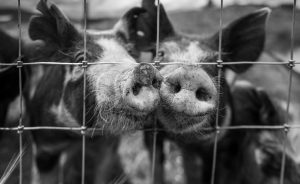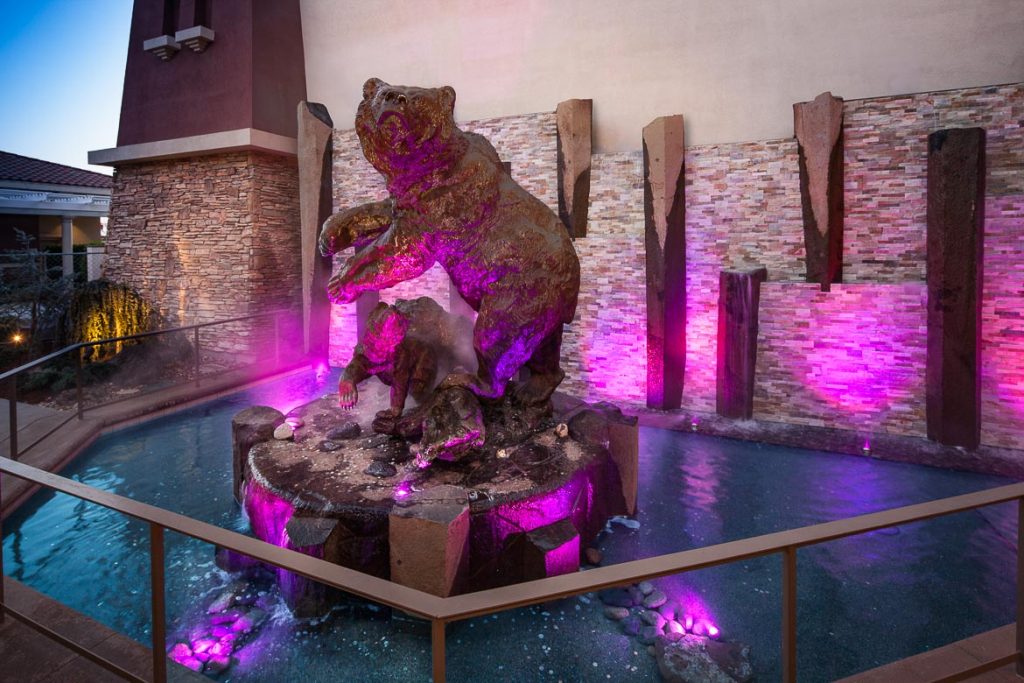Yes, hogs, like other animals, can experience heat stress. Heat stress occurs when an animal’s body is unable to dissipate heat effectively, leading to elevated body temperature and potential health problems. Pigs and hogs are particularly susceptible to heat...
 Yes, hogs, like other animals, can experience heat stress. Heat stress occurs when an animal’s body is unable to dissipate heat effectively, leading to elevated body temperature and potential health problems. Pigs and hogs are particularly susceptible to heat stress because they lack sweat glands, making it challenging for them to regulate their body temperature in hot conditions.
Yes, hogs, like other animals, can experience heat stress. Heat stress occurs when an animal’s body is unable to dissipate heat effectively, leading to elevated body temperature and potential health problems. Pigs and hogs are particularly susceptible to heat stress because they lack sweat glands, making it challenging for them to regulate their body temperature in hot conditions.
Several factors can contribute to heat stress in hogs:
Heat-stressed hogs may display various signs of distress, including excessive panting, lethargy, reduced feed intake, and even collapse in severe cases. Heat stress can have significant economic implications for hog farmers, as it can lead to reduced growth rates, reproductive problems, and increased mortality rates.
To mitigate heat stress in hogs, farmers can employ various management strategies, such as providing access to cool, shaded areas, ensuring proper ventilation, and using misters to help lower the ambient temperature. Additionally, adjusting the timing of feeding and other husbandry practices to cooler parts of the day can also help alleviate heat stress in pigs.
Misters, also known as evaporative cooling systems or mist cooling systems, can be highly beneficial for mitigating hog heat stress in hot and humid conditions. The use of misters helps to create a cooler and more comfortable environment for the pigs, which can lead to several specific benefits:
Temperature ReductionMisters spray fine droplets of water into the air, which evaporate and absorb heat from the surrounding environment. This process effectively lowers the ambient temperature in the hog’s living space, providing relief from the heat. Enhanced Cooling
Pigs do not have efficient sweat glands, so they primarily rely on panting to cool themselves. Misters complement this natural cooling mechanism by reducing the temperature of the air, making it easier for hogs to dissipate excess heat through panting. Improved Comfort
Cooler conditions lead to increased comfort for hogs. When pigs are comfortable, they experience reduced stress levels, which can have positive effects on their overall well-being and productivity. Increased Feed Intake
Heat-stressed hogs often reduce their feed intake, leading to reduced growth rates and potentially affecting production. By cooling the environment with misters, pigs are more likely to maintain their normal feed intake, supporting healthy growth and performance. Reduced Heat Stress-Related Issues
Heat stress can lead to a variety of health problems in hogs, including decreased fertility, higher mortality rates, and increased susceptibility to diseases. Misters help prevent these issues by minimizing the impact of heat stress. Preventing Heat Stroke
In severe cases of heat stress, pigs can suffer from heat stroke, which is a life-threatening condition. Misters play a crucial role in preventing heat stroke by regulating the ambient temperature and providing a safer living environment for the animals. Enhanced Breeding Performance
Heat stress can negatively affect reproductive performance in sows and boars. By using misters, hog farmers can create a more suitable breeding environment, potentially improving fertility rates and litter sizes.
It’s important to note that while misters can be highly effective in reducing heat stress, they should be properly installed and managed. Careful consideration of factors such as humidity levels, ventilation, and the positioning of misters is essential to achieve optimal results.
Farmers, please call our team so we can get you the cooling system you need. You can also check out this new APP to help determine their Passel or Drove level of heat stress by clicking here.
The post Hot Hog’s…There’s a Koolfog Solution For That! appeared first on koolfog.com.










